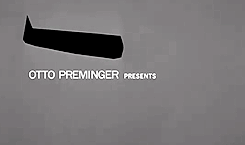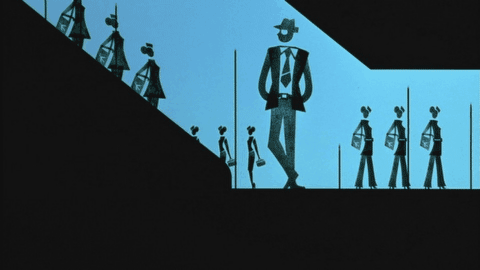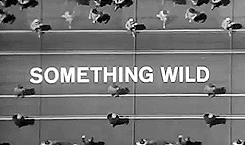Saul Bass the late, great master of the film-title sequence, didn’t just have a burst of brilliance in the ’50s and ’60s and then fade to black. He still had plenty in reserve when major directors of the next generation who’d grown up on his work, including Steven Spielberg, Martin Scorsese and Jonathan Demme, came of age and enlisted his talents.
The Art & Science site at Medium has republished part of a 1977 interview Herbert Yager conducted with Bass. The opening:
Question:
How did you get involved with movie titles?
Saul Bass:
I began as a graphic designer. As part of my work, I created film symbols for ad campaigns. I happened to be working on the symbols for Otto Preminger’s Carmen Jones and The Man With The Golden Arm and at some point, Otto and I just looked at each other and said, “Why not make it move?”
It was as simple as that.
Until then, titles had tended to be lists of dull credits, mostly ignored, endured, or used as popcorn time.
There seemed to be a real opportunity to use titles in a new way — to actually create a climate for the story that was about to unfold.
Question:
When The Man With The Golden Arm opened in New York in 1952, the symbol was used on the marquee, a testimony to the effectiveness in that medium. How did the symbol function when you translated it to film?
Saul Bass:
The film was about drug addiction. The symbol — the arm — in its jagged form expressed the disjointed, jarring existence of the drug addict.
To the extent that it was an accurate and telling synthesis of the film in the ad campaign, those same qualities came with it into the theater and with the addition of motion and sound it really came alive and set up the mood and texture of the film.
Question:
You made the transition from purely graphic devices to live action early in your career. How did the titles from In Harm’s Way and Seconds represent the next evolutionary step?
Saul Bass:
As I said before, I started in graphics. Then, as you’ve seen, I began to move that graphic image on film. Somewhere down the line, I felt the need to come to grips with the realistic — or live action — image which seemed to me central to the notion of film. And then a whole new world opened to me.•
Tags: Herbert Yager, Otto Preminger, Saul Bass



